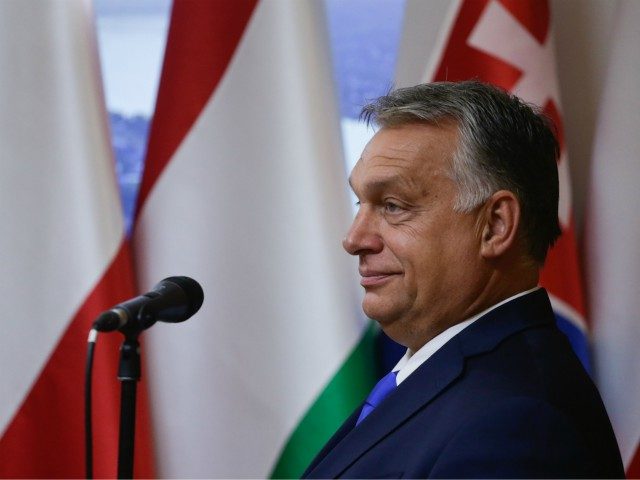The central European Visegrád group has criticised the European Commission’s planned reform of the EU’s asylum policy, which could ultimately force members to accept migrants.
This week, the EU’s powerful executive arm announced that it would be scrapping the Dublin arrangements and replacing it with a “strong new solidarity mechanism”. The proposal would also open up more routes for migration and asylum.
Euractiv reported that the mechanism would give member-states a choice between hosting migrants or being responsible for returning failed asylum seekers under the “returned sponsorship schemes”.
While it is claimed accepting migrants would not be mandatory, the website notes that under a proposed “crisis preparedness” mechanism, nations would be forced to take migrants either permanently or during the repatriation process, such a crisis being on the scale of the 2015 Europe migrant crisis itself.
The report even suggests that states which opt to simply hold illegals until deportation will ending up having to keep them, owing to the difficulty of repatriation.
The mass migration-sceptic Visegrád, comprised of Hungary, Poland, the Czech Republic, and Slovakia, rejected the proposals after meeting with European Commission President Ursula von der Leyen on Thursday. (Slovakia’s premier was not present, and was represented by his Czech counterpart.)

(From L) Czech Prime Minister Andrej Babis, Polish Prime Minister Mateusz Morawiecki and Hungarian Prime Minister Viktor Orban pose ahead of a press conference at the Polish Permanent representation in Brussels, on September 24, 2020. – Hungary’s anti-immigration prime minister Viktor Orban said on September 24, 2020, that EU proposals for tougher new asylum rules do not go far enough. (Photo by Aris Oikonomou / AFP) (Photo by ARIS OIKONOMOU/AFP via Getty Images)
Prime Minister of Hungary Viktor Orbán said that the proposed measures do not include the option to host the migrants in “hot spots” in third countries outside of the EU, so that asylum applications can be assessed before a migrant sets foot on European soil.
“There are many changes, but there is not yet a breakthrough. A breakthrough would mean outside hotspots,” Prime Minister Orbán said after the meeting between the V4 and Mrs von der Leyen.
“Nobody can enter the EU without having a permission to do so because their request for asylum is accepted. Until that moment they have to stay out of the territory of the EU,” the Hungarian premier added.
Mr Orbán further said: “‘Allocation’ or ‘quota’, to change the name is not enough. Hungary is against it. The basic approach is still unchanged. They [the Commission] would like to manage migration, and not to stop the migrants. The Hungarian position is stop the migrants.”
His Czech counterpart Andrej Babiš agreed, saying: “We have to stop migration and the quotas and relocation. These rules are not acceptable for us.”
Mr Babiš added that migrants should instead be stopped at the EU border and returned to their home countries “and be given help there”.
Austrian Chancellor Speaks Out Against EU Migrant Redistribution Policy https://t.co/o4SBXTWwyd
— Breitbart London (@BreitbartLondon) September 25, 2020
The prime ministers were backed by Poland’s president, Andrzej Duda, who told local media on Friday: “For the sake of those countries from which these people are escaping war today, they need to be as close to their borders as possible in order to have the greatest possible enthusiasm and motivation to come back and rebuild them.”
President Duda criticised plans to force EU member states to accept migrants, saying: “No dictate of the European Union, I believe, should ever force us to do so. We should never agree with that.”
The Visegrad states are not the only EU nations to reject any migrant redistribution plans. Austrian Chancellor Sebastian Kurz called any such system a “failed” policy. He advocated instead for strengthening the EU’s external borders, sending aid directly to countries where the migrants are originating, and breaking up people-trafficking networks.

COMMENTS
Please let us know if you're having issues with commenting.